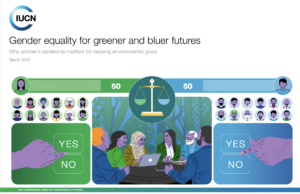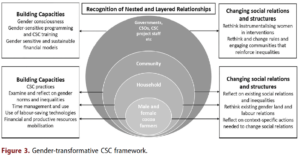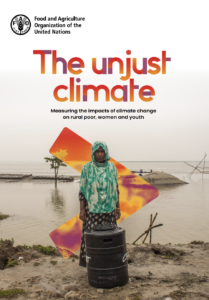Gender considerations can critically influence smallholder farmers’ access and capacity to act on weather and climate information, as well as subsequent livelihood benefits. The paper reviews the existing knowledge base on gender equality challenges in climate services to assess these gender-based differences and identify promising pathways for making climate services more responsive to the needs of rural women. Findings from the review highlight that existing research is limited; nonetheless, studies indicate that differential access to peer groups and networks and to ICTs can be significant factors limiting women’s access to weather and climate information. Socio-cultural norms that define women’s and men’s labor roles can also influence the resources and decisions under women’s and men’s control, affecting their differing climate information needs and demand, also. Potential ways forward suggested by the literature are: (1) including women’s groups and networks in climate information delivery; (2) developing ICTs that respond to women’s preferences; meeting women’s climate information needs; and pursuing cross-sectoral collaboration. Research opportunities include analysis of the potential for women’s and mixed-gender groups to enhance women’s access to climate information; evaluation of what combinations of communication processes improve women’s understanding of and action on climate information; and further connection with the body of knowledge on intra-household decision-making processes.
Authors: Tatiana Gumucio (Postdoctoral Research Scientist), James Hansen (Senior Research Scientist), Sophia Huyer (CCAFS Gender and Social Inclusion Research Leader), Tiff van Huysen (Instructor)
Source: USAID



